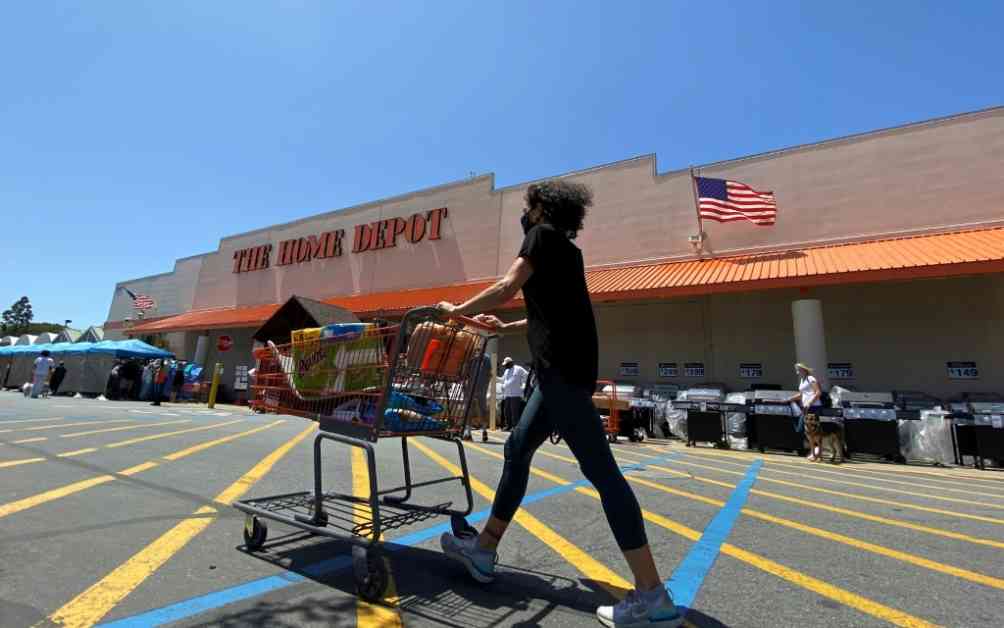Home Depot, the popular hardware retailer, recently settled a lawsuit for nearly $2 million following accusations of false advertising and overcharging customers. The settlement comes after several California district attorneys filed a civil enforcement case against the company, alleging unfair competition and deceptive pricing practices. While Home Depot did not admit any wrongdoing, it agreed to pay $1.7 million in civil penalties and an additional $277,251 to cover investigation costs and support future consumer protection efforts.
Scanner Violations and Pricing Errors
The complaint against Home Depot, filed in San Diego Superior Court, highlighted instances where customers were charged higher prices at the checkout than what was displayed on shelf tags or the items themselves. These discrepancies, known as “scanner violations,” led to shoppers paying more than they expected. This issue not only affects consumers’ wallets but also erodes trust in retailers and distorts the marketplace.
In response to the settlement, Los Angeles County District Attorney George Gascón emphasized the importance of maintaining accurate pricing in retail establishments. False advertising and unfair competition are serious offenses that can harm consumer confidence and undermine fair competition among businesses.
Price Accuracy Program and Consumer Protection
As part of the settlement, Home Depot is required to implement a price accuracy program to prevent future pricing errors. This initiative aims to ensure that customers are charged correctly for the products they purchase and to uphold transparency in pricing practices. By taking proactive measures to address pricing discrepancies, retailers can improve trust with their customers and avoid potential legal consequences.
The Impact of Overcharging on Consumers
Overcharging at the checkout is a common issue that many shoppers may not be aware of. According to the UK’s Competition and Markets Authority (CMA), 60% of pricing errors result in customers being overcharged for their purchases. The CMA’s investigation into grocery stores across England and Wales revealed that pricing inaccuracies were prevalent in various types of stores, particularly in fresh produce and promotional items.
George Lusty, the interim executive director of the CMA, noted that pricing discrepancies can be frustrating for consumers, especially when they discover discrepancies at the checkout. To make informed decisions and save money, shoppers must be vigilant about checking prices and ensuring that they are charged accurately for their purchases.
Lessons from Other Retailers
Home Depot is not the only retailer to face allegations of overcharging and deceptive pricing practices. In a similar case, Walmart was recently sued for falsely inflating the weight of certain items sold by weight, resulting in customers paying more than they should have. Despite denying the claims, Walmart ultimately settled the lawsuit for a significant amount.
These incidents serve as a reminder of the importance of maintaining transparent and accurate pricing practices in the retail industry. By adhering to pricing regulations and ensuring that customers are charged correctly, retailers can uphold consumer trust and avoid legal consequences.
Tips to Avoid Overcharging
To protect themselves from overcharging, experts recommend that shoppers take a few simple precautions. First and foremost, always double-check the prices on shelf labels or signs to ensure that they match the amount charged at the checkout. If there is a discrepancy, alert store management immediately to address the issue.
For items sold by weight, such as produce, use the scales provided in the relevant departments to weigh your items before heading to the checkout. When using self-checkout machines, ensure that the scale is zeroed before weighing your items to avoid inaccuracies in pricing. If you notice any discrepancies, notify store staff promptly to rectify the situation.
Legal Protections for Consumers
Different regions may have varying policies regarding overcharging, with some jurisdictions offering legal protections for consumers who are overcharged. For example, in Wisconsin, customers who are overcharged are entitled to a refund for the price difference between the advertised price and the amount charged. Some retailers may even offer the overcharged item for free as compensation for the error.
The Road Ahead for Home Depot
While the settlement with Home Depot represents a step towards protecting consumers from unfair pricing practices, the long-term impact of the company’s price accuracy program remains to be seen. Moving forward, Home Depot will likely face continued scrutiny to ensure compliance with pricing regulations and prevent future pricing errors.
In conclusion, the recent settlement with Home Depot serves as a reminder of the importance of accurate pricing in the retail industry. By taking proactive measures to prevent overcharging and deceptive pricing practices, retailers can build trust with their customers and maintain a fair marketplace for all consumers. Remember to always check your receipts and be vigilant about pricing discrepancies to protect yourself from overcharging.













